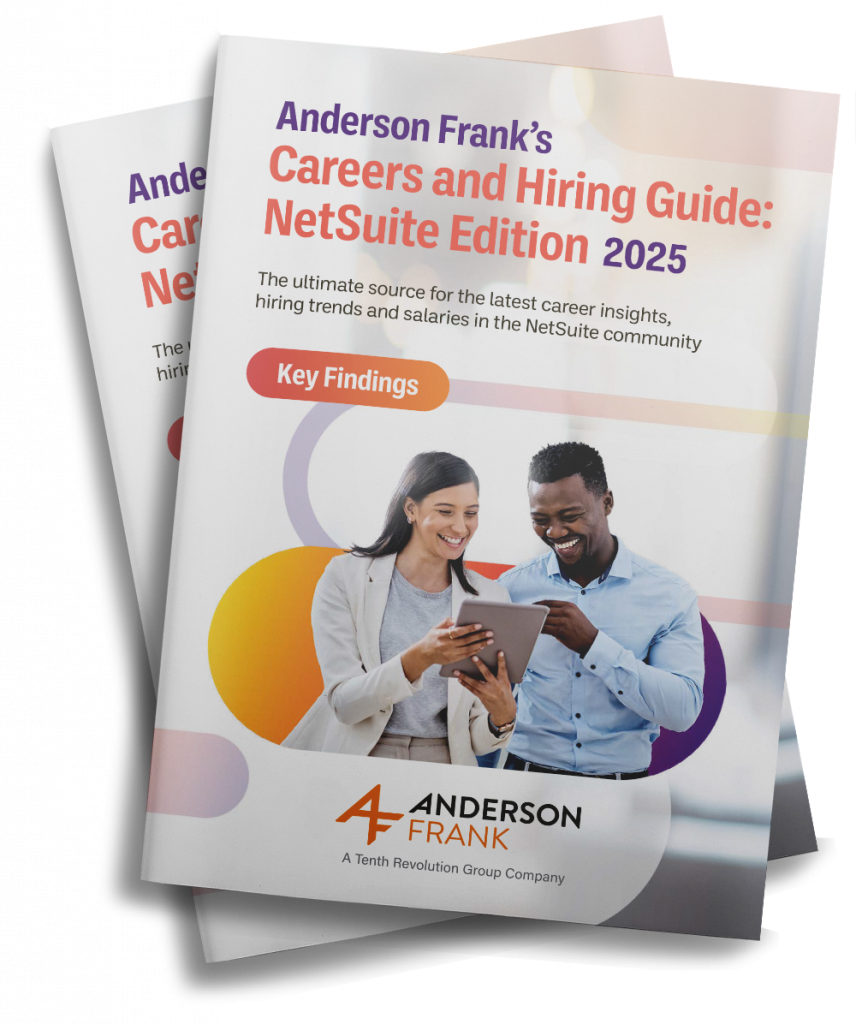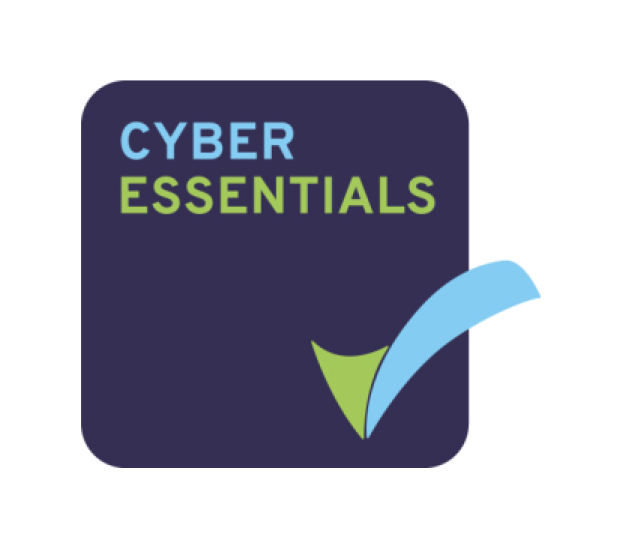Insights for NetSuite end users

Attraction and retention
However, with digital transformation set to remain at the heart of virtually every business strategy, the future could be about to shift again. Regardless of how that actually looks moving forward, it’s safe to say that professionals want to have a greater say in their own career decisions—seeking opportunities that better reflect their personal beliefs and ambitions.
For employers, that makes it even more important than ever to have a finger on the pulse of what jobseekers want, as well as creating a clear employer brand that will help you stand out on the job market.
What attracts candidates to take a role?
| Better salary and compensation package than my previous role | 49% |
| Opportunities for career progression, development, or a defined career path | 48% |
| For personal development/to expand my skill set and experience | 44% |
| For a better work-life balance | 29% |
| For a new challenge | 28% |
| To work for an organization with values that align with my own | 23% |
| To escape a toxic company culture/for a better company culture | 23% |
| To gain flexibility in my working hours | 21% |
| The chance to work in a challenging role or on a challenging project | 19% |
| The new role was a promotion | 18% |
| To work for a prestigious organization with a great reputation | 18% |
| The opportunity for hybrid or remote flexibility | 16% |
| To pursue a leadership position | 14% |
| To work in a different industry | 11% |
| Other | 8% |
| Better salary and compensation package than my previous role | 49% |
| Opportunities for career progression, development, or a defined career path | 48% |
| For personal development/to expand my skill set and experience | 44% |
| For a better work-life balance | 29% |
| For a new challenge | 28% |
| To work for an organization with values that align with my own | 23% |
| To escape a toxic company culture/for a better company culture | 23% |
| To gain flexibility in my working hours | 21% |
| The chance to work in a challenging role or on a challenging project | 19% |
| The new role was a promotion | 18% |
| To work for a prestigious organization with a great reputation | 18% |
| The opportunity for hybrid or remote flexibility | 16% |
| To pursue a leadership position | 14% |
| To work in a different industry | 11% |
| Other | 8% |
Similar to our last survey, 91% of permanent employees tell us that, salary aside, workplace benefits are important when deciding whether or not they will accept a job.
What are the top 10 perks that entice a candidate to accept a new role?
Respondents were asked to identify the top three perks that would influence their decision to accept a job offer. The most valued perks include being rewarded for a job well done, a positive work environment that supports work-life balance, and a commitment to employees’ wellbeing.
The other prized benefits include:
*It’s worth noting that bonuses structures differ considerably across the NetSuite community, both in terms of the amount offered and the frequency that it’s paid. Junior positions generally receive smaller bonuses compared to senior roles, while established positions often come with more substantial financial rewards.
End users typically provide their permanent employees with annual or bi-annual bonuses, whereas NetSuite partners or ISV employees may enjoy more frequent bonuses and greater incentives that are tied to billable hours.
Linkedin Poll
Are employees looking to change employer?
Almost half (49%) of respondents in permanent roles expect to work for their current employer in the coming year, while 20% are actively looking for a new role. A further 10% expect to leave but aren’t currently job hunting, and the remaining 21% are unsure if they will stay or go.
| Those dissatisfied with their job overall | Those dissatisfied with their career progression | Those dissatisfied with their salary | |
|---|---|---|---|
| I plan to stay with my employer | 7% | 23% | 19% |
| I am actively looking for a new role | 50% | 43% | 30% |
| I expect to leave my employer, but I’m not currently job hunting | 29% | 20% | 19% |
| Not sure | 14% | 14% | 32% |
| I plan to stay with my employer – 7% |
| I am actively looking for a new role – 50% |
| I expect to leave my employer, but I’m not currently job hunting – 29% |
| Not sure – 14% |
| I plan to stay with my employer – 23% |
| I am actively looking for a new role – 43% |
| I expect to leave my employer, but I’m not currently job hunting – 20% |
| Not sure – 14% |
| I plan to stay with my employer – 19% |
| I am actively looking for a new role – 30% |
| I expect to leave my employer, but I’m not currently job hunting – 19% |
| Not sure – 32% |
What motivates an employee to consider a new role?
On average, those primarily motivated to change roles by a pay rise would expect a 29% increase on their current salary.
How likely are professionals to accept a new role that involves working in the office five days a week?
Among those who are currently offered some level of remote working, 33% are unlikely to accept a role that involves working in the office five days a week.
Takeaways for leaders
Motivation to move from a partner to an end user
Over two-thirds 71% (up from 63% in our previous study) of partner employees would consider working for an end user, and cited the following factors that would encourage them to make this move:
| Ability to work remotely | 49% |
| Higher earning potential | 43% |
| Better work-life balance | 40% |
| Better career progression opportunities | 40% |
| Ownership over a project/system | 36% |
| Better training and learning opportunities | 34% |
| Possibility to develop skills across different NetSuite products | 30% |
| Better benefits | 26% |
| Consistency | 25% |
| Less stress | 25% |
| More stability | 23% |
| Less travel | 15% |
| Other | 2% |
| Ability to work remotely | 49% |
| Higher earning potential | 43% |
| Better work-life balance | 40% |
| Better career progression opportunities | 40% |
| Ownership over a project/system | 36% |
| Better training and learning opportunities | 34% |
| Possibility to develop skills across different NetSuite products | 30% |
| Better benefits | 26% |
| Consistency | 25% |
| Less stress | 25% |
| More stability | 23% |
| Less travel | 15% |
| Other | 2% |
It’s interesting how many answers require very little financial investment to implement. The ability to work remotely is the runaway leader, with better work-life balance not too far behind earning potential. This indicates that, with the dust really beginning to settle, employees know what they want—and that’s to be able to mix home and work life in a far healthier way.
The good news for employers is that this shouldn’t really mean too much change if you’re doing things correctly already. The best approach to attracting and retaining staff has always been flexibility and treating people right. While training and development, career progression and better benefits can all require budget, they aren’t necessarily the number one way to ensure you have the best NetSuite talent in your building (or connected to it remotely!).
We also asked the 9% (down from 19%) of respondents who could not see themselves making the move to an end user why they wouldn’t consider it, and their reasons were:

Discover what motivates end user employees to work for a partner organization.
What do employers need to prioritize to maximize employee happiness and retention?
How satisfied are employees?
| Satisfied | Neutral | Dissatisfied | |
|---|---|---|---|
| Colleagues | 78% | 14% | 9% |
| Benefits | 64% | 22% | 13% |
| Company culture | 64% | 20% | 17% |
| Working hours | 61% | 22% | 16% |
| Career progression | 51% | 26% | 23% |
| Training and development | 49% | 30% | 21% |
| Satisfied – 78% |
| Neutral – 14% |
| Dissatisfied – 9% |
| Satisfied – 64% |
| Neutral – 22% |
| Dissatisfied – 13% |
| Satisfied – 64% |
| Neutral – 20% |
| Dissatisfied – 17% |
| Satisfied – 61% |
| Neutral – 22% |
| Dissatisfied – 16% |
| Satisfied – 51% |
| Neutral – 26% |
| Dissatisfied – 23% |
| Satisfied – 49% |
| Neutral – 30% |
| Dissatisfied – 21% |
This year, respondents’ satisfaction with their working hours has seen a downward trend, dropping to 61%, from 70% in our last survey, and 77% in the one prior, while dissatisfaction rose (16%, compared to 11% and 9% respectively).
It was also considered an important factor for those pursuing a move to a new role, with 42% considering leaving an employer because of a dissatisfaction with their working hours.
The percentage of respondents satisfied with their career progression has also dropped to 51%, from 64% in our last study, and more are reporting dissatisfaction with their training and development (21% dissatisfied now compared to 19% in 2024).

Curious about the training and development that NetSuite professionals desire to stay satisfied?
How do employees rate their job satisfaction year over year?
How can you boost employee satisfaction?
How satisfied are employees with their salary?
How do employees rate their satisfaction with their salary year over year?
| Satisfied | Neutral | Dissatisfied | |
|---|---|---|---|
| 2025 | 52% | 30% | 17% |
| 2024 | 61% | 20% | 14% |
| 2023 | 64% | 24% | 15% |
| 2022 | 69% | 18% | 13% |
| 2021 | 61% | 22% | 18% |
| 2025 – 52% |
| 2024 – 65% |
| 2023 – 61% |
| 2022 – 69% |
| 2021 – 61% |
| 2025 – 30% |
| 2024 – 20% |
| 2023 – 24% |
| 2022 – 18% |
| 2021 – 22% |
| 2025 – 17% |
| 2024 – 14% |
| 2023 – 15% |
| 2022 – 13% |
| 2021 – 18% |
- I’m earning below the market rate
- My pay has not kept up with inflation
- I’ve taken on more work and responsibility, but my salary hasn’t changed
- I’ve had no pay increases or salary review in over a year
Our key findings report contains highlights from this year’s Careers and Hiring Guide, plus our salary tables allow you to compare your salary or benchmark your teams’ salaries no matter their role in the NetSuite ecosystem.



